Kitty Green’s The Assistant explores workplace gaslighting
Kitty Green’s exploration of insidious harassment has set tongues wagging ... but tales of powerful people abusing their positions are only half the story.
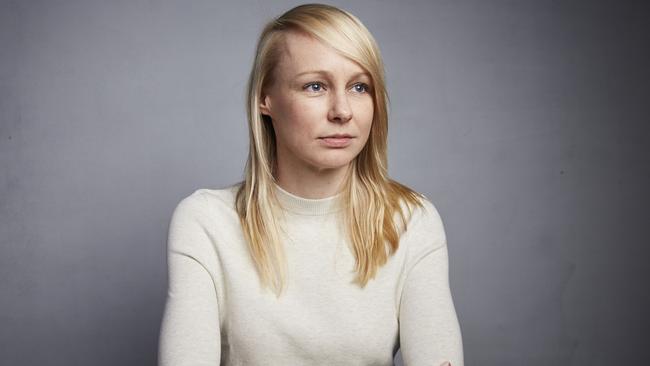
Kitty Green’s The Assistant is a quiet storm, a slow-building, unobtrusively devastating movie. Green, an Australian documentary-maker in her feature debut, tackles the depiction of a sexual predator’s workplace in an inventive and surprising fashion. Its strength is in its beautifully balanced combination of the oblique and the direct; Julia Garner, as the title character, is remarkable.
The film has screened at Telluride, Sundance and Berlin, to rave reviews: it will be available on VOD next week.
It all began in 2017, when Green was on campus in the US, doing research for a documentary on power and consent. As allegations about Harvey Weinstein started to break, she changed the direction of her inquiry, turning her attention to the environments where this kind of behaviour flourished. Out of more than 100 interviews came a feature script.
Researching, she says, “a lot of people told me crazy stories. They worked for very powerful people, so you get these stories, especially from people in the film industry, of private jets and yachts and briefcases full of money. But I was never interested in the crazy or extraordinary. I was looking at things that most women could relate to. My focus was more on the ordinary and the banal”.
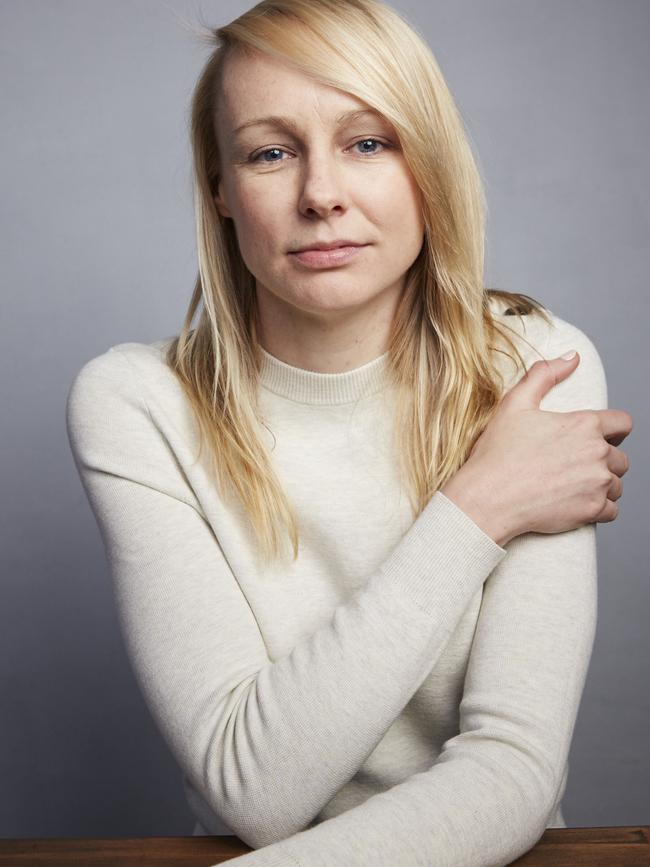
Her film is about a day in the life of an assistant (Garner) who has recently started work for a powerful movie mogul. We never see his face. We don’t know his name. We hear his voice, we see his emails and we glimpse him briefly in silhouette. But his presence is everywhere: in the atmosphere of the office, the conversations around her, the demands made on her, the assumptions of others, the routine tasks she is expected to perform.
It’s up to us, as viewers, to pay attention to this, to reflect on the accumulation of details. We watch her arrive at the office first, while it’s still dark, carrying the files she took home; printing documents, handing out schedules and drafts to colleagues who drift in and out, unpacking office supplies, arranging flights, dealing with crises large and small.
Then there are the other details: the cleaning of a couch, the return of a dropped earring, the preparation of pharmaceuticals, the introduction of a new, inexperienced young woman to the staff. There’s a textured soundscape that builds atmosphere, scraps of conversation that refer, in matter-of-fact ways, to other stories, histories, experiences. In its mesmerising, undemonstrative way, The Assistant is as tense as a thriller.
When Green talked to friends about making a movie focusing on the assistant to a predatory boss, they would say to her, “ah, the enablers”. Green saw it differently.
“It’s more complicated than that; I’m not sure you call a young woman in her position an enabler,” she says. “I think she’s just trying to get through the day. And she’s doing it task by task, and every seventh or eighth task is a little odd or disconcerting. But she doesn’t have all the information. She has the dots, she can’t join them together. So there’s only so much that she knows and so she’s just trying to move through the day and survive it. And it was important to me that we weren’t homing in on details that she wouldn’t notice. I wanted to make sure it was definitely from her perspective.”
In the script itself, Garner (The Americans, Ozark) had very little to work on in terms of character. There is a small amount we learn about her ambitions, her education: she has a couple of phone conversations with her parents during the day. The script was about precise quotidian detail, Green says.
“She does the photocopying, she makes the coffee,” Green says. “But it didn’t have much detail about what was emotionally going on in the character. And so when I met with [Julia], I wanted to make sure that she had the time and was willing to sit with me and really nut out the character together.”
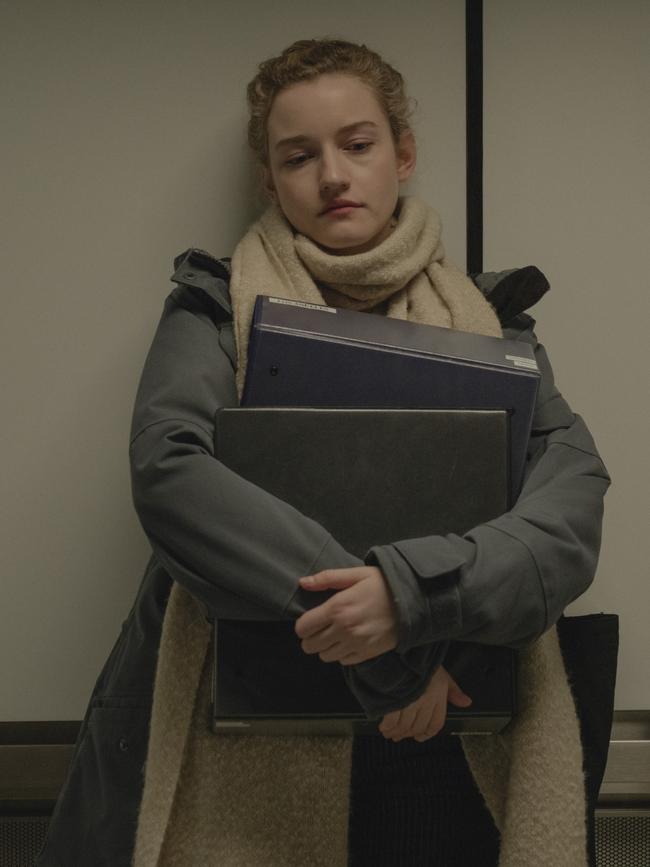
There was a month of pre-production ahead of an 18-day shoot, time for them to immerse themselves in preparation. “I think we spoke together to some assistants who had worked in similar environments, and we spent a lot of time going through the script line by line, figuring out where she was emotionally. We had to have a shorthand by the time we got to shooting, we had to be ready.”
In production there was an unanticipated change that arose during scenes in which the assistant talks to her boss on the phone over the course of the day. Green says: “I assumed that those scenes would be shot wide and you wouldn’t be able to hear what’s coming out the other end. It wasn’t scripted. I had ‘the boss grumbles’ or ‘the boss yells’.
“But Julia’s face is so expressive and wonderful that as soon as we started shooting, I was like, ‘Oh, I have to be right in there. And it has to be close up’. So you really do need to hear more than I assumed you would.”
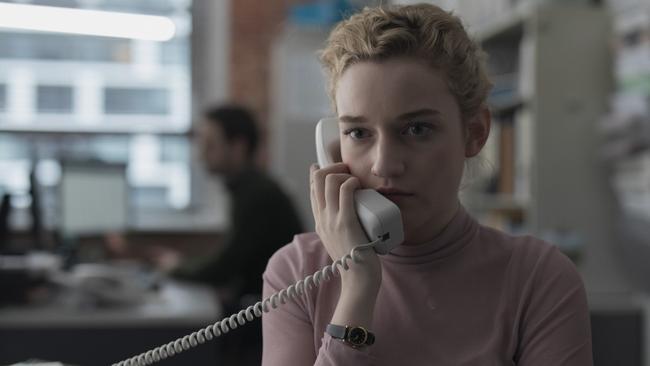
So the boss’s dialogue, a mixture of anger and manipulation, was scripted in post-production. “And then we had to find an actor.” Her casting agent told her, “I know who you should get” — voice actor Jay O. Sanders. “And he came in and was just, ‘oh, I’ve met a million of these guys. I know exactly what to do’.
“He just took it through to a whole other place and was really wonderful. Terrifying, to be honest. I was sitting there listening in the booth, really scared. We did a bit of improvisation and scripted multiple versions of it and found what worked.”
There is something different, it turns out, about his day, and the assistant decides to go to the human resources manager, played with unnerving, elastic precision by Matthew Macfadyen (Pride and Prejudice, Succession). In writing this HR character, Green says: “I definitely had a few goals. One of them was to point out that HR departments are there to protect the company, not employees. That was the No 1. Goal. No 2, I wanted to have an example of gaslighting. I spoke to a lot of people who felt gaslit by certain employees at companies and I really wanted to point out how you can go into a meeting with concerns and come out confused as to why you walked in there in the first place.”
In her first draft, the HR manager was angry and swore a lot. “And then I thought, isn’t it a little more insidious if he is very calm and very rational. And everything he says makes sense in a way. So it became a little more horrifying to me.”
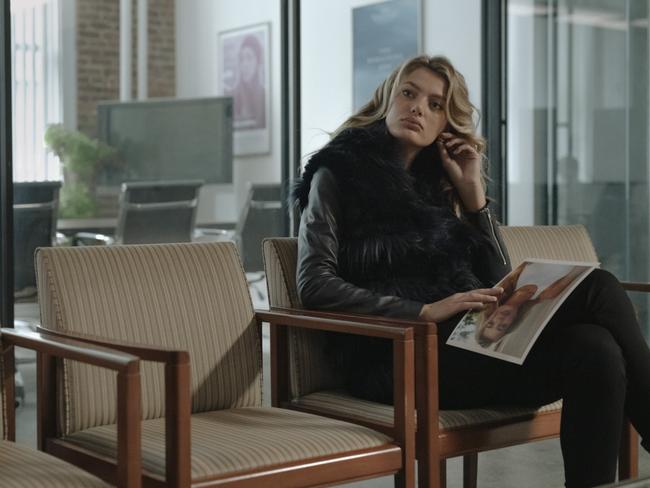
Coming from a documentary background, Green says she found great pleasure in seeing performers tackle a script and develop its possibilities. “They did it again and again, and they’re so good, and every time it was better and better. I was very fortunate.”
She based her film on research and detail, but there were cinematic influences too, she says. She looked at “office films” like 9 To 5, the 1980 comedy about female office workers in revolt, starring Jane Fonda, Lily Tomlin and Dolly Parton. Stanley Kubrick’s Vietnam drama Full Metal Jacket was another movie she watched while she was writing, thinking about “this idea that you’re kind of broken down and how the system dehumanises you”.
And, above all, there was Chantal Akerman’s 1975 masterpiece, Jeanne Dielman, 23, quai du Commerce, 1080 Bruxelles, an extraordinary, extended portrait of a woman whose daily routines are gradually offering her the sense of certainty and control they once did. Its appeal for her was about “gesture and repetition and routine and the way that film uses time. And the idea that it really shows the realities of domestic labour by going task by task through this woman’s life”.
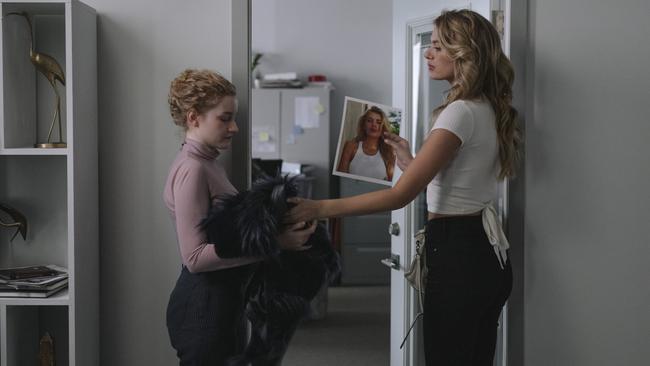
For The Assistant, she says, “I was interested in making sure it was like an authentic experience. I wanted to try to force an audience into the shoes of somebody with very little power, or the least power, at a powerful company. And what that was like to be her and to be a woman, especially a young woman, in a place like that”.
This has a broader context than the issue of predation. “I was particularly interested in gendered division of labour, and the times women have had to do tasks the men weren’t asked to do”; in The Assistant, for example, cleaning, looking after babies brought into the office for a visit, getting the coffee, being expected to take the calls from the boss’s wife.
“Often when the female employees are getting the coffee, the men get to meetings,” Green says, “and there’s something they miss through having to do those sort of tasks.”
Yet there are times when women can exercise power or be in a position to distance themselves from the powerless. “I never wanted to make a film that was like ‘men are bad, woman are good’,” Green says. “That was never the intention. And I felt like the first draft almost fell into that a little bit. A few friends of mine read it and said, ‘let’s give the most severe, the most cutting line to a woman; and let’s see how that changes the dynamic’.” She made the change. “I loved that. I thought that was a great note.”
Green’s documentaries, varied as they are, have focused on female experience. In Ukraine Is Not A Brothel (2013), she explored the complex story of Femen, the Ukrainian feminist protest group. In the subversive Casting JonBenet (2017) she used a technique she had already employed in a short film on a different subject. She approached a controversial unsolved murder case by examining people’s responses to it, through the process of auditioning local people for a putative docudrama.
Doing the research for The Assistant, she says: “What was most shocking to me was how repetitive it was. I kept hearing the same stories over and over again. I spoke to women in the film industry mostly, but also to women in finance and tech. A lot of my friends in Australia are engineers and architects, because I studied architecture for a year. I was hearing similar stories from them too.
“I guess what was most shocking was just how prevalent these abusive work environments were, especially specifically gendered work environments, and how common it is, I was surprised at how many people could report similar kinds of behaviour.
This has been reinforced, she says, by audience response. She has been surprised all over again by “how much people connect with the character even when they work in completely different industries, in completely different fields”.
“It’s also interesting how men respond to it. Some get it,” she says. “There are incredible male allies who come and sit down and acknowledge that maybe some of their behaviour has been a little similar to things in the film. And maybe they should interrogate that a little bit and think about it.
“A lot of men come in and say ‘it’s not a film about gender. This could happen to anybody’. And I think any woman who’s worked in an office can say, ‘no, it is about gender for us’. A lot of men have that kind of reaction and get a bit uncomfortable.”
That’s fine with her, she says. “I’ve always said since the beginning that a little bit of discomfort is necessary if we want things to change.”
The Assistant will be on Foxtel PVOD on May 9 and from June 10 available to rent on iTunes, Google (YouTube & Google Play) Bigpond, Fetch TV, Sony (PlayStation network), Microsoft and Quickflix.
READ MORE: Katie Noonan: Wonder-ful song in the key of strife | WATCH: Colin Hay in the Isolation Room

To join the conversation, please log in. Don't have an account? Register
Join the conversation, you are commenting as Logout